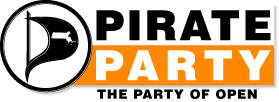A bill currently under consideration by the Massachusetts legislature would give Microsoft the ability to bully companies in Massachusetts on a massive scale, while preventing its free software competitors from using the same law to protect their rights against infringement committed by Microsoft. This technique of spreading fear, uncertainty and doubt (FUD) is one of Microsoft’s favorite ways to prevent competition.
Bill H02842, the TurboFUD bill, basically states that if any company in a product’s supply chain (in the US or elsewhere) uses unlicensed software, the company that sells the product can be held liable. The company would then face penalties including monetary damages, restrictions on the sale of its products, and potentially seizure of its products. This would place enormous burdens on Massachusetts companies (including retailers of hard goods)–essentially forcing them to audit the IT departments of all of their suppliers or face huge penalties and endless litigation. This would make it even harder for companies to create jobs in Massachusetts during an already difficult time. And it’s all being done to protect Microsoft, a failing monopoly in Redmond, WA; the bill explicitly states that it cannot be used to defend against infringement of free and open source licenses.
Below is the text of an email you can send to your local representatives regarding the TurboFUD bill. Use the subject line “Help protect Massachusetts businesses from Microsoft’s anti-competitive legislation”. You can find your local representatives with this tool.
Good morning,
Microsoft has been trying to advance its anti-competitive agenda by introducing state laws that allow US companies to be sued if anyone in their supply chains, in the US or elsewhere, use “misappropriated information technology.” One such bill, H02842, is currently being considered in the Massachusetts Legislature. It would allow Microsoft to sue companies selling products if anyone in the product development process, in the United States or elsewhere, used an infringing copy of a software product. This law would place an undue burden on all companies that use information technology, (including companies that sell hard goods) not just those that produce it.
In addition to helping Microsoft throw a cloud of fear, uncertainty and doubt (also described here) over competing products, the bill has a special loophole to prevent it from being used to defend free software. A similar bill passed the Washington State legislature over the objections of fifteen companies including IBM, Dell, Intel and Motorola (see below). We need to send the message that Massachusetts isn’t willing to enact anti-competitive laws to protect monopolists living in Washington State. A broad overview of Microsoft’s state-by-state strategy, and some of the reasons why it’s probably unconstitutional, is here.
Thank you for your attention to this important issue.
Sincerely,
Your Name and address
Text from letter sent by fifteen companies to the Washington State Legislature opposing the Washington State version of the bill:
“American businesses that unwittingly buy from companies alleged to be using unlicensed software could be unfairly penalized. The onerous remedies in the bill – including monetary damages, potential seizure of products, and injunctions barring sale of products in the state – would invite baseless and burdensome litigation that could be used in an anti-competitive manner.”
from an article in The Olympian, a local WA newspaper: http://www.theolympian.com/2011/03/13/1577694/wa-piracy-bill-pits-microsoft.html#ixzz1HX40HR53
Online text of the bill: http://www.malegislature.gov/Bills/187/House/H02842
Wikipedia entry for ‘Fear, uncertainty and doubt’ as a marketing and political tactic: http://en.wikipedia.org/wiki/Fear,_uncertainty_and_doubt
Software Freedom Law Center founder Eben Moglen on monopolists’ use of FUD: https://www.youtube.com/watch?v=6YExl9ojclo
Wikipedia entry for Free Software: http://en.wikipedia.org/wiki/Free_software
Groklaw article regarding the TurboFUD strategy: http://www.groklaw.net/article.php?story=2011032316585825

Not everyone uses html-capable email clients. It would help if you had a list of links at the bottom of the email, footnote style.
Fixed! Thanks for reminding me; I’ll remember that in the future.
I changed the text to the following: “In addition, the bill has a special loophole to prevent it from being used to defend free software, which backs many of the computing products developed by small businesses in Massachusetts.” I haven’t worked at many tech companies here, but as far as I know this is true.
In her auto-reply Ms. Peisch asked me to include my address and telephone number in constituent mails. The latter is unfortunately impossible for me, but I thought readers should know.
Thanks Avery! You can call Representative Peisch at 617-722-2070.
We can get our legislator’s contact info at:
http://www.malegislature.gov/People/
I haven’t received a response yet from my state rep or senator, but I know they tend to get respond eventually.
Thanks Kristi, we will start adding links explicitly at the bottom.
In my personal opinion, commercial piracy is wrong and should be penalized, because your making money off of someone else’s hard work without paying them and/ or gaining permission. What I don’t like about this law is how it doesn’t protect free and open source software from commercial piracy. If they’re going to make a law like this it should protect all software, not just “paid” software, that’s what makes this bill anti-competive and that’s why I don’t support it.